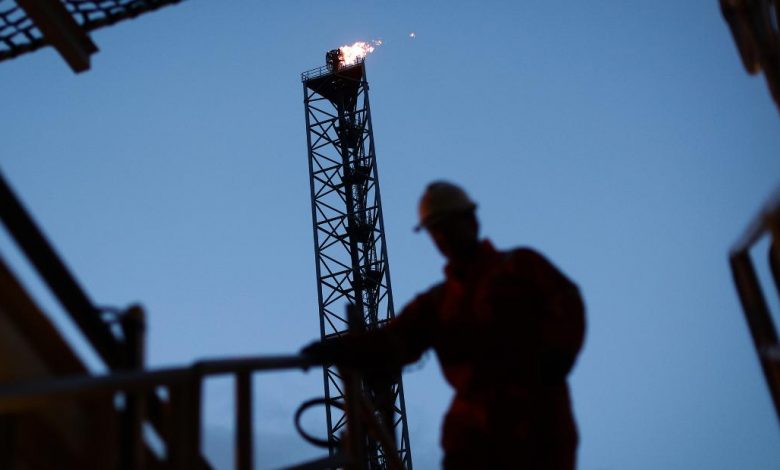Here to stay or gone in 30 years? Inside the fight over the future of the oil industry

For decades, Aberdeen, a port city on Scotland’s northeast coast, has served as the commercial gateway to the North Sea, where powerful companies have navigated deep and dangerous waters to extract tens of billions of barrels of crude. But the basin isn’t what it used to be, even with oil back above $80 per barrel. Production has been on the decline since the turn of the century. Downturns caused by twin price shocks — one in 2015 and one triggered by the Covid-19 pandemic — are harrowing reminders of what happens when a boom turns bust.Then there’s the COP26 climate summit in the Scottish city of Glasgow, which kicks off Sunday. The United Nations and partner scientists have delivered a clear message: The world needs to “immediately and steeply” cut back on fossil fuel production to maintain a livable planet. Attention is focused on huge energy producers like Saudi Arabia, Russia and the United States and top consumers like China and India. But the United Kingdom’s North Sea is in focus, too — in part due to its proximity to Glasgow, but also because of huge efforts to dramatically overhaul the region’s business model.There’s skepticism that the United Kingdom can have it both ways, however. The oil and gas sector maintains the government can approve new ventures and still meet its 2050 climate targets. Yet the International Energy Agency has said that fresh oil and gas development must stop if the world is going to limit warming to 1.5 degrees Celsius and avoid the worst effects of the climate crisis.Keeping that option open is the primary goal of COP26, where 197 nations and territories with different economic priorities will try to agree on a plan of action.”Emissions don’t have a passport, so we need to have a more holistic view here,” said IEA Executive Director Fatih Birol.The business of oil and gasThe United Kingdom’s North Sea accounts for a sliver of global oil and gas output, but remains an investment hub for both domestic and international oil companies.While the basin is nearing the end of its lifecycle, it still holds 4.4 billion barrels of oil equivalent, according to the United Kingdom’s oil and gas regulator. OGUK, the industry lobby, estimates that £390 billion ($534 billion) has been invested off the coast of the United Kingdom over the last 50 years, and that in the next five years, companies could commit another £21 billion ($29 billion).Driving that spending is forecasts for demand through 2050. In a report earlier this month, the IEA said that if countries live up to current climate pledges, limiting warming to 2.1 degrees Celsius, demand for fossil fuels will peak around 2025. But even under that scenario, the world will still be consuming 75 million barrels of oil per day by 2050 — just 25 million barrels per day less than today.Companies like Shell (RDSA) emphasize that what will really help the world decarbonize is a “fundamental shift in demand” from its customers, which range from big businesses in shipping and aviation to commuters filling up their tanks at gas stations.”Right now you can get all the [publicly-listed] companies like ourselves out of the production of oil and gas,” Sawan said. “It will not have a single barrel of impact on the overall demand level, because all of that production will in essence migrate to many other countries — national oil companies — who will satisfy that demand.”
The importance of abundant and reliable energy has been underscored in recent months as natural gas prices hit record highs in Europe and China has been forced to ration electricity supplies.But as the climate crisis grows more urgent, the business environment for fossil fuel companies looks increasingly challenging. Over the summer, the UN Intergovernmental Panel on Climate Change issued “a code red for humanity” as the window to limit warming to 1.5 degrees Celsius rapidly shrinks.”The climate movement is very, very powerful at the moment,” Philip Lambert, who runs an influential energy advisory firm in London, said at a recent industry conference. “It’s swept through most of the key institutions that underpin our society in the West, and they don’t want people to invest in oil and gas anymore.”That’s squeezing access to capital across the sector. In the meantime, shareholders are reevaluating their oil and gas holdings as they prioritize companies that align with broader environmental and social priorities. They’re also asking serious questions about whether the big oil companies of today will still exist in 30 years’ time.An existential debateFossil fuel production remains a lucrative business. The 10 largest publicly-traded producers are expected to bring in almost $466 billion in revenue this year from the business of searching for and extracting oil and gas, more than in 2019, according to an analysis conducted by Rystad Energy for CNN Business.But funding troubles and the threat of tougher government policies have sparked an existential debate within the industry. The biggest multinational oil companies in Europe, including Shell, BP (BP), Eni (E) and Total (TOT), have started to reorient their businesses around this reality, pledging to reach net-zero emissions by 2050. That target includes the carbon released when products are burned. The pledges are positive steps, according to climate experts, though each comes with its own loopholes and qualifications.BP has promised a 10-fold increase in annual low carbon investments by 2030, when it expects its oil and gas production to have fallen by 40% from 2019 levels. Shell has disclosed that it reached its maximum oil production in 2019, and that output will now fall 1% to 2% annually.The joint venture between Shell and Siccar Point, which would produce 164 million barrels of crude during the first phase of development, has become a flash point ahead of COP26. Activists claim approving the Cambo project would be hypocritical as the country strives to lead climate talks, while backers argue that domestic production remains essential to meet demand and limit reliance on imports.Meanwhile, a British regulator recently blocked Shell’s plans to develop the Jackdaw gas field in the North Sea on environmental grounds. Conversations between the company and the regulator are ongoing.”Recent decisions have made us question if we do indeed have that clarity [from the UK government],” Sawan said.UK Energy Minister Greg Hands told CNN Business during a visit to Scotland that the government remains “supportive of the sector overall.””Some of the things that are talked about for new developments have already actually had their license approved some time ago,” he said. “So they’re already, if you like, sort of baked into our assessments on emissions.”And for all the talk of big opportunities, local workers remain skeptical that they stand to benefit.”The transition in terms of moving from oil and gas as an energy resource to renewables is happening — that’s happening all around us — but the workforce, I fear, [is] being left behind,” said Jake Molloy, a regional organizer for the trade union RMT based in Aberdeen.Tuokpe Brikinns, a 41-year-old safety engineer who was laid off in May, said he’s trying to switch industries due to uncertainty about what lies ahead.”I’m looking at a different sector, a place where there will be more job security,” Brikinns said at a local job fair earlier this month. “At the moment, oil and gas is not promising at all.”Those working to build a hybrid basin are confident workers like Brikinns will be able to find employment in wind, solar or hydrogen as local investment increases. Whether they’re right will speak to what’s next for oil towns everywhere — and the oil industry.”There’s a lot of other countries looking at the North Sea” as a model, said Malcolm Forbes-Cable, vice president of energy consulting at Wood Mackenzie.





